General rules and room zoning
In order for a small children’s room to look visually larger, you need to follow several rules:
- Light color palette (pastel wallpaper with or without a pattern, glossy white ceiling, do not use more than three colors to create the interior). Bright accents are appropriate for children under 7 years old and more muted ones after 9 years.
- Select vertical shelves and racks, refuse horizontal cabinets and open shelves (narrow tall furniture pulls up all the space, closed doors hide all things and organize order).
- Maximum of functional things, unnecessary accessories along with toys will clutter up the empty space of the nursery. It is important to have drawers, hidden shelves for toys on the windowsill, under the bed or in the corner.
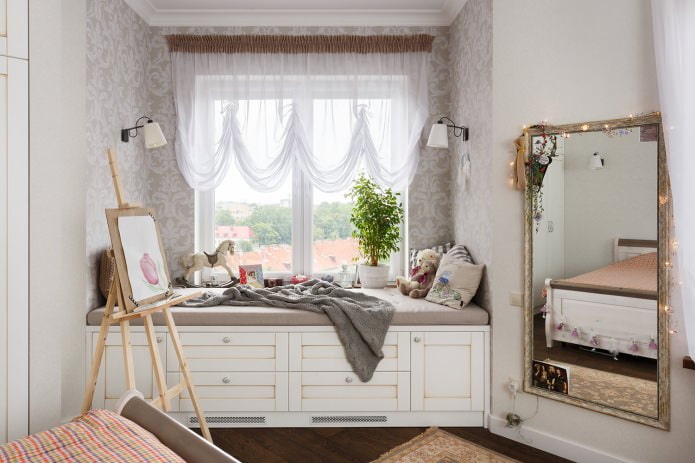
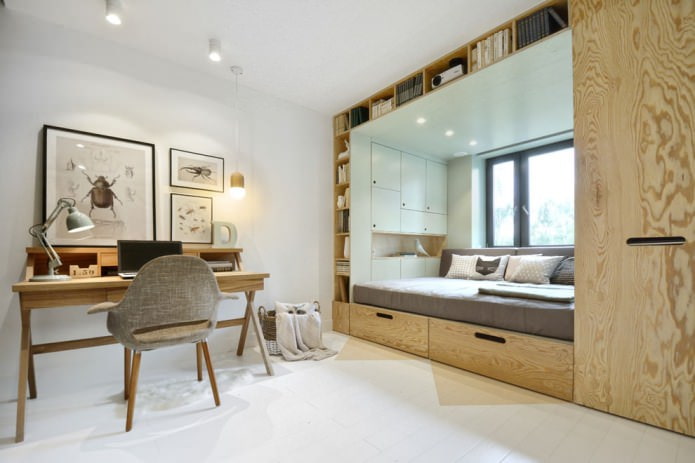
The main rule for zoning a small nursery is to arrange furniture near the walls to free up as much space as possible.
- The work area should be well lit by daylight and artificial light, so it is better to place the table near the window. A schoolchild only needs a small table, a comfortable chair and one small wall shelf. It is better not to choose a wide table (to save space and not to clutter the table with unnecessary items).
- The recreation area or bed in the nursery should be lit with subdued warm light for the child to have a good rest; a bedside night light will help the child get used to sleeping on his own.
- The play area can contain boxes with toys, an easel or a slate, a game console and a TV, a small sofa or a soft bean bag chair, a floor mat or pillows.
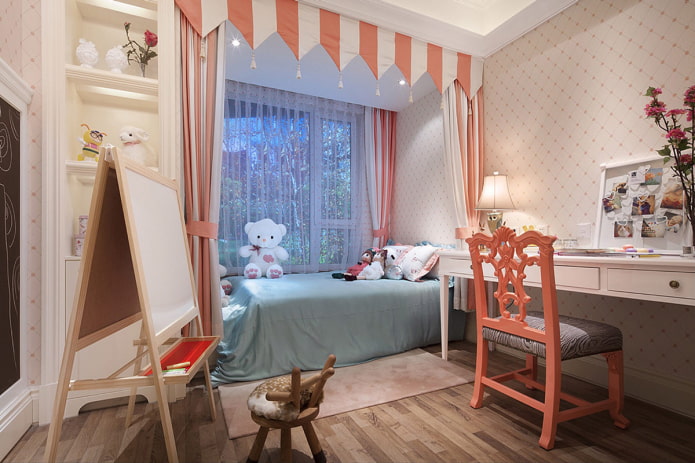
The photo shows the functional use of the space by the window as a recreation area with separate lighting.
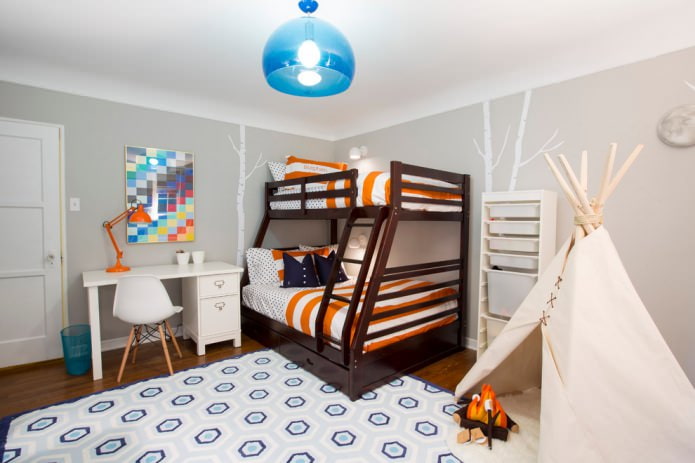
Choosing an interior style
In order for the nursery to look relevant for as long as possible, it is worth decorating it with toys and accessories that are easy to replace. The room can be designed in different styles using a play of colors, textiles and decor.
- The modern style of a children’s room implies the presence of functional furniture, a transformable bed or a special set, where the bed occupies the second floor, and a small sofa or table is located under it.
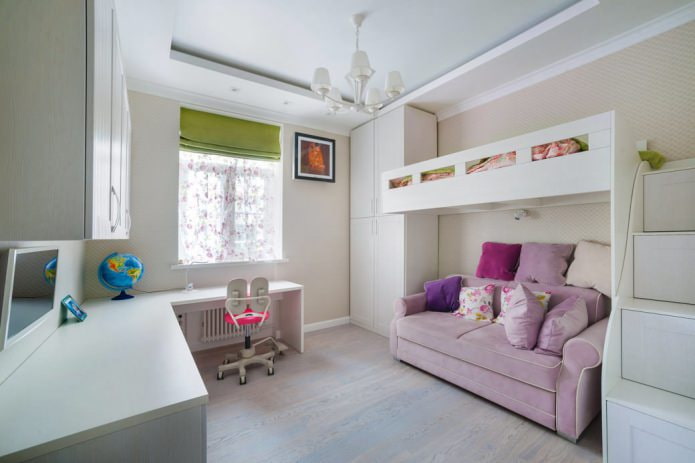
The photo shows a room for two, where the work area is increased by a corner table, and the rest area is occupied by a bed on the second level and a fold-out sofa.
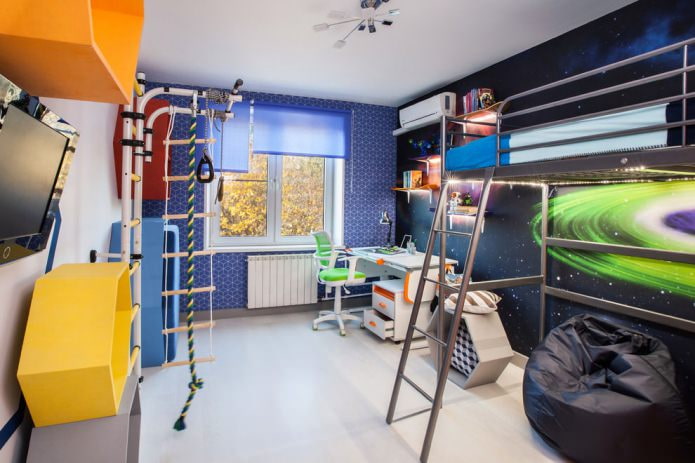
- The marine style in the children’s room is suitable for both boys and girls, it is decorated in blue tones, with white furniture, fittings in the form of shells and ships.
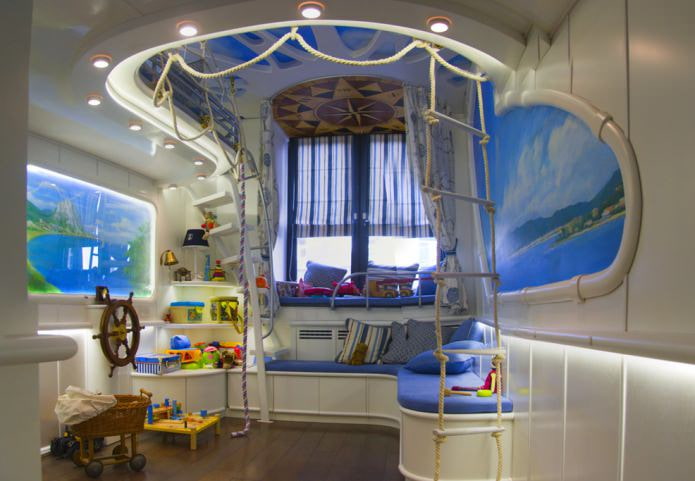
- Scandinavian style implies open wardrobes, white colors, knitted blankets, light curtains and a wooden floor.
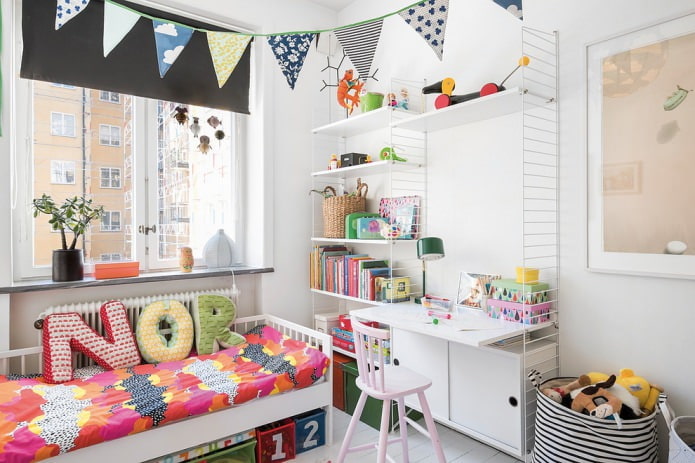
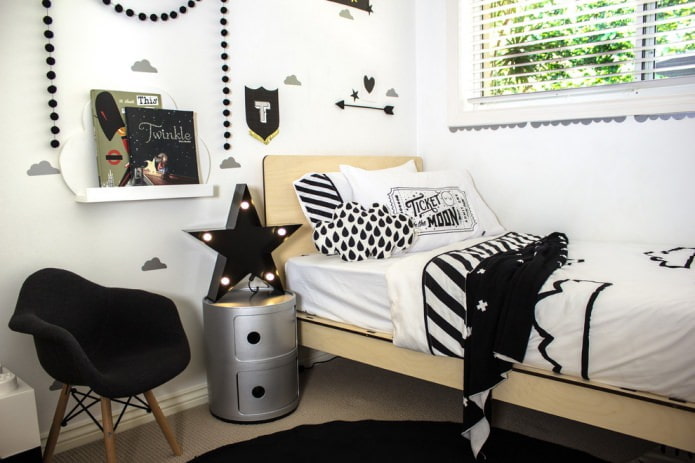
- In a classic children’s room, a wardrobe is replaced by a tall chest of drawers, the walls are painted in a soft blue or beige color. Classicism is created by gold fittings, photo frames, a lambrequin and a canopy.
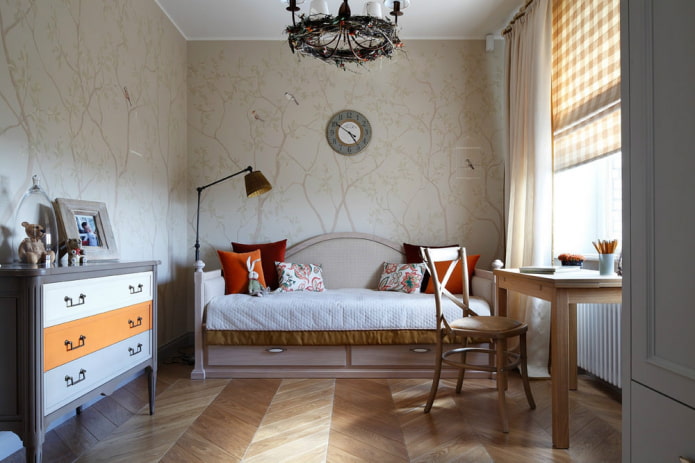
- Provence is suitable for decorating rooms for girls. Wallpaper with a small flower pattern, short simple curtains, carved furniture and fresh wild flowers will create the coziness of the French style.
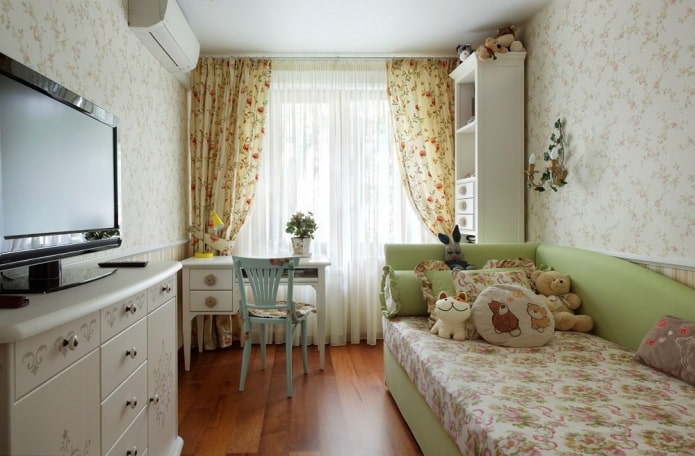
Color scheme
When choosing a color, the main thing is not to overdo it with bright accents, which will make a small space even smaller. Cream, turquoise, light gray and white shades of walls are suitable for a newborn’s nursery, which will be combined with pale yellow, tangerine, soft pink.
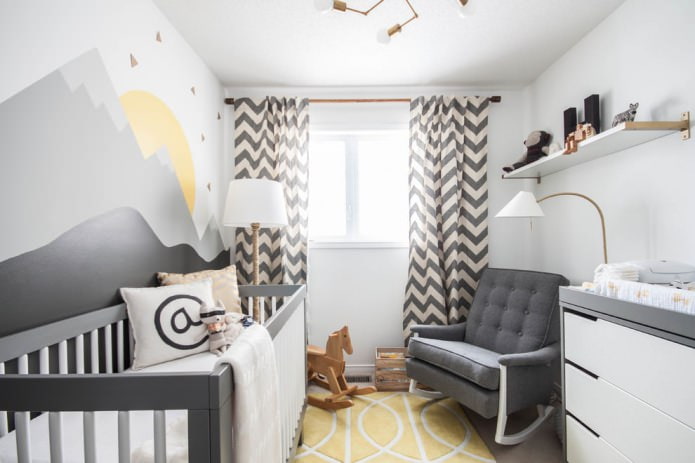
The photo shows a nursery for a baby in gray and white tones with pale yellow accents.
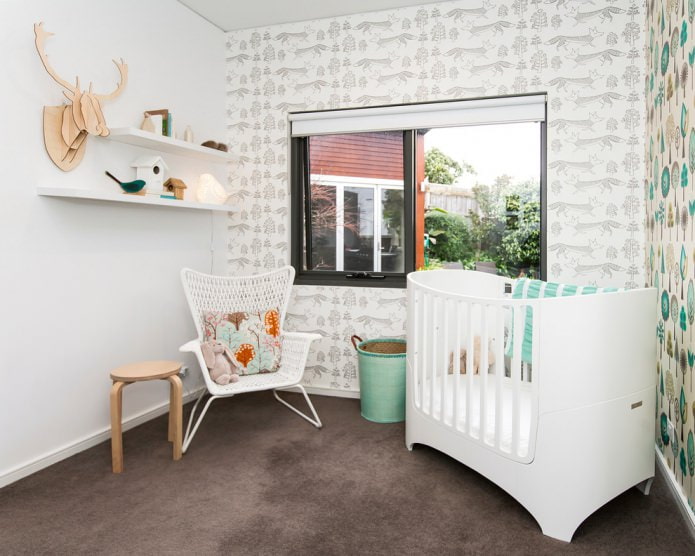
You can traditionally decorate a nursery in pink or blue, but it is much more interesting the following combinations look good for a boy’s room:
- Gray and white walls and yellow interior details;
- Gray walls and blue and white details;
- Turquoise and white walls and natural wood color;
- Blue and white walls and red accents;
- White walls and green and orange accents;
- Green and white walls and natural wood color.
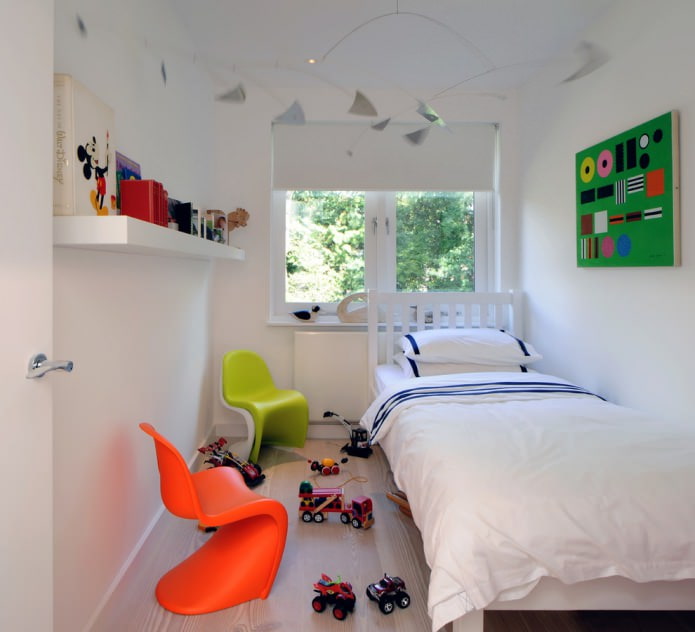
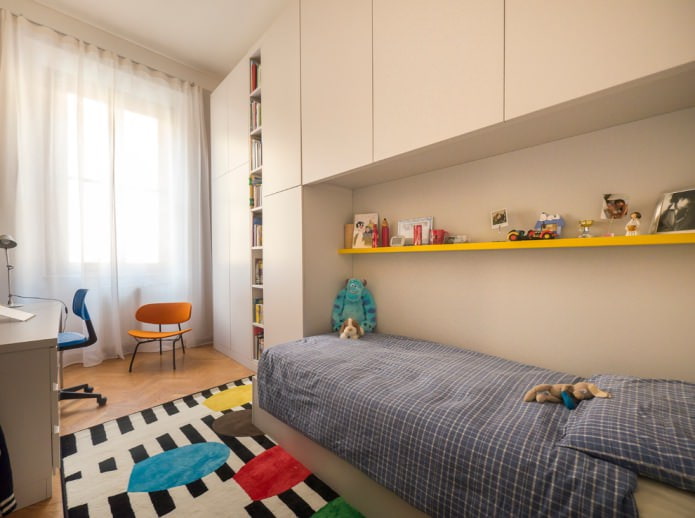
For a girl’s nursery:
- Gray and pink pastel shades for the walls and white decor;
- Beige walls and a soft pink accent in textiles;
- Gray walls and tangerine decor;
- Gray walls and fuchsia in the interior;
- Beige walls and turquoise accents.
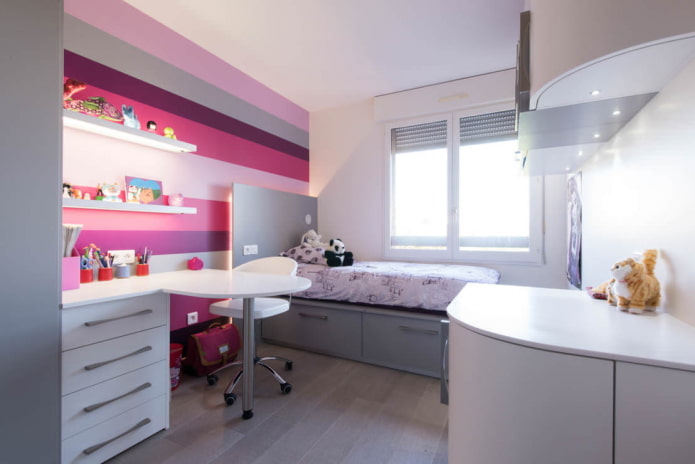
The photo shows a small modern girl’s room in gray and pink with ergonomic furniture and the right lighting.
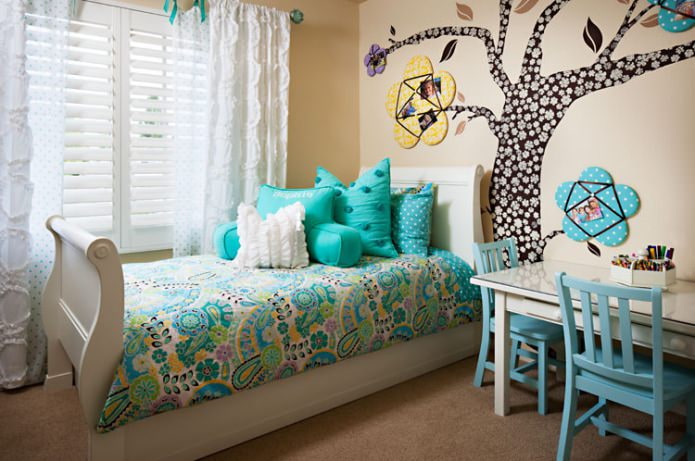
Finishing requirements
All materials for finishing and furnishing the children’s room must be environmentally friendly and not emit harmful substances and strong odors.
- Walls. For smooth walls, a special water-based paint is suitable, which lays down well and dries quickly. As the child grows up, the walls can be repainted over the old paint and change the style of the room. You can use paper or non-woven wallpaper, which will hide the unevenness of the walls.
- Flooring. Laminate with a slight roughness is suitable for the floor so that the child does not slip. Cork flooring, which is very warm and non-slip, is also a good choice. It is better to refuse massive carpets and carpeting as a dust storage, a small carpet made of natural materials will do. If you choose linoleum for a child’s room, it should be without synthetic materials.
- Ceiling. Whitewashing or painting will do, you can make a stretch single-level glossy ceiling that reflects light and additionally increases the small area.
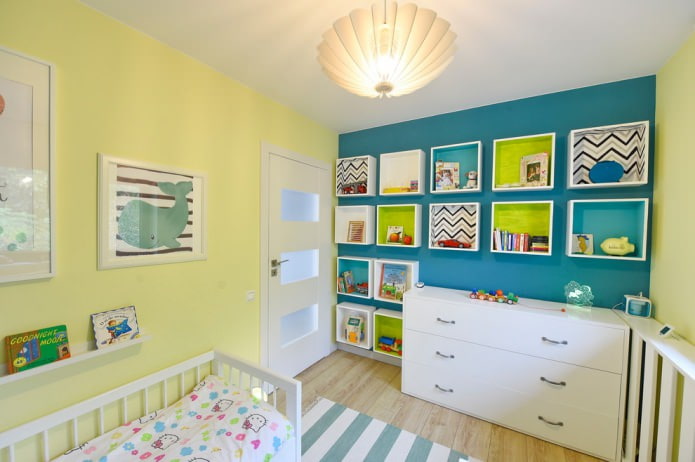
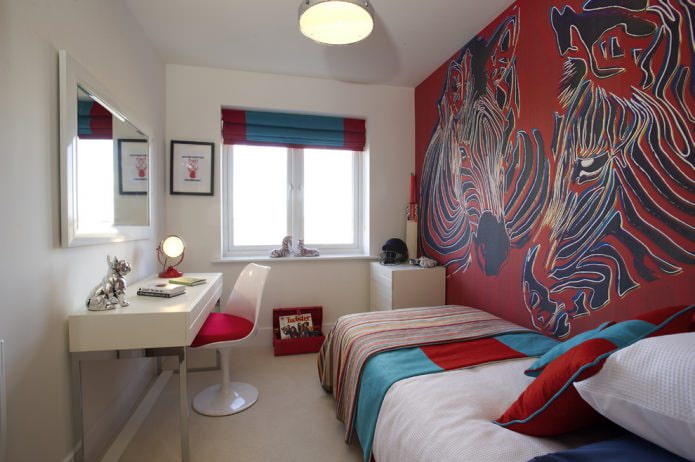
The photo shows a white nursery with a red and blue accent on the wall and in the textiles. A small room looks wider due to the mirror.
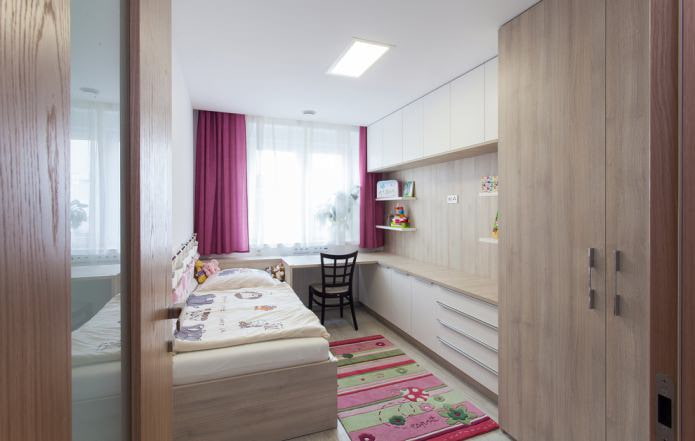
Choosing furniture
Transformer furniture or modern compact furniture will help to organize a play, rest and study area for the child. Designers offer a wide range of furniture designs, where the bed is combined with a table, shelves and drawers, freeing up space for games and additional interior items. Furniture for a small nursery should be made of light wood or painted in light shades (milky, white, light beige, etc.).
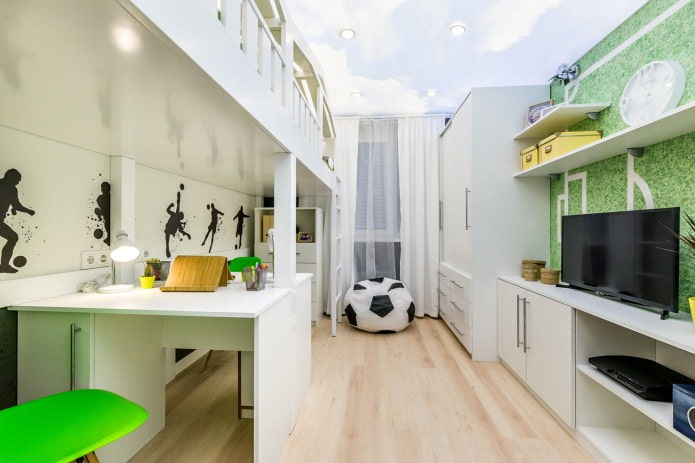
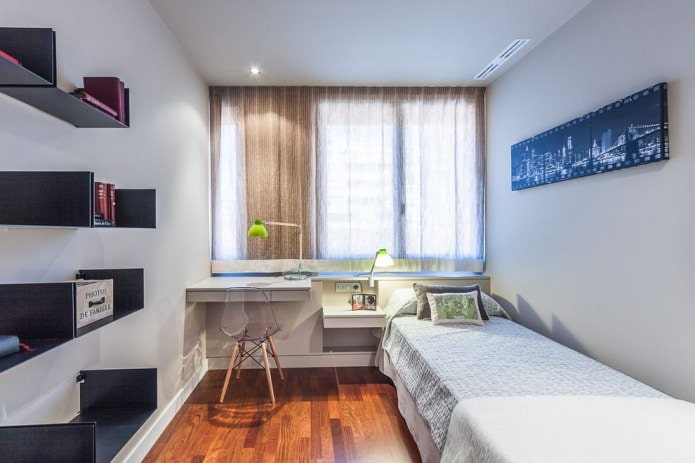
One wardrobe will help save space in a small nursery and additionally replace a couple of shelves, and a large built-in mirror in the cabinet doors will create the illusion of a wide room.
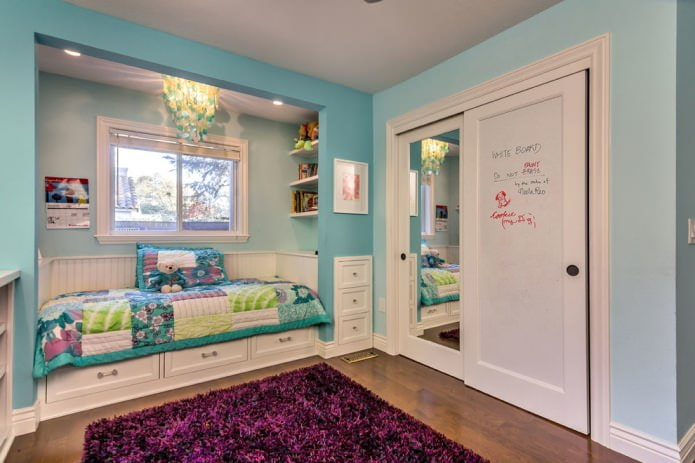
It is better to choose a bed for growth, a regular adult size, and organize a second floor for games or storage. The bed can also be a chest of drawers, which has pull-out shelves at the bottom. A pull-out bed, a chair-bed, a fold-out sofa will also save space in a small nursery.
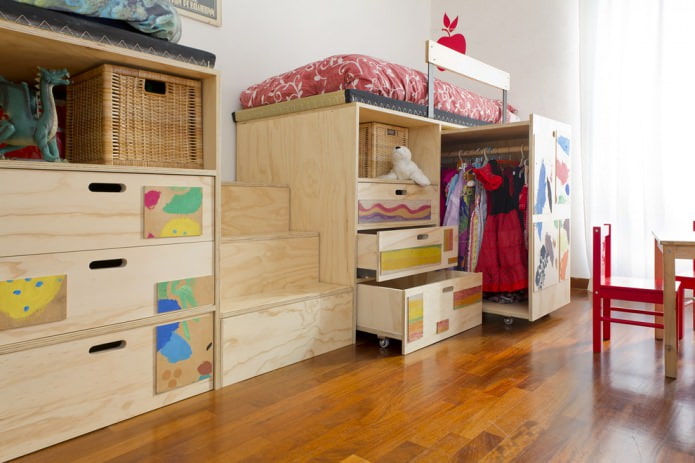
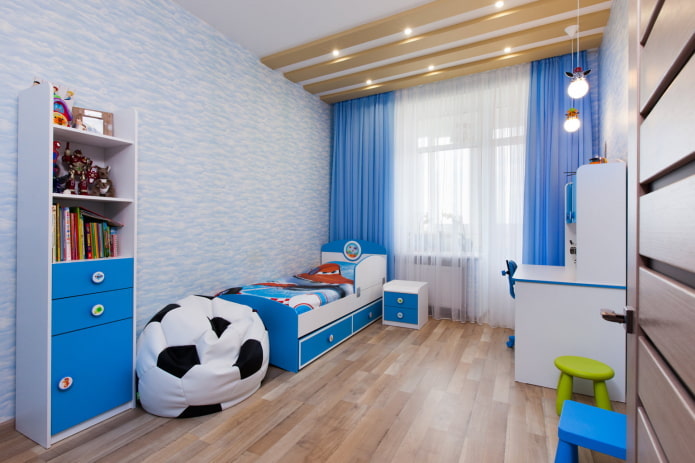
The photo shows a children’s room for a boy in blue, where all the furniture is used rationally.
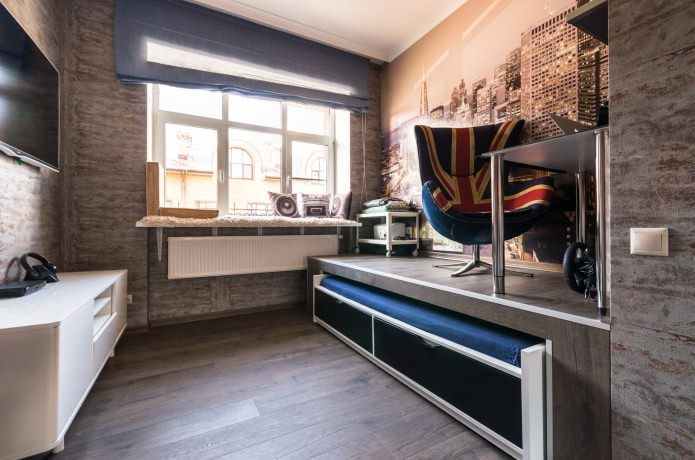
It is recommended to take a desk and chair of adjustable height. For compact placement, a shelf and racks occupy both sides of the table. There are also ready-made sets where the bed is located above the table, thus combining two zones near one wall.
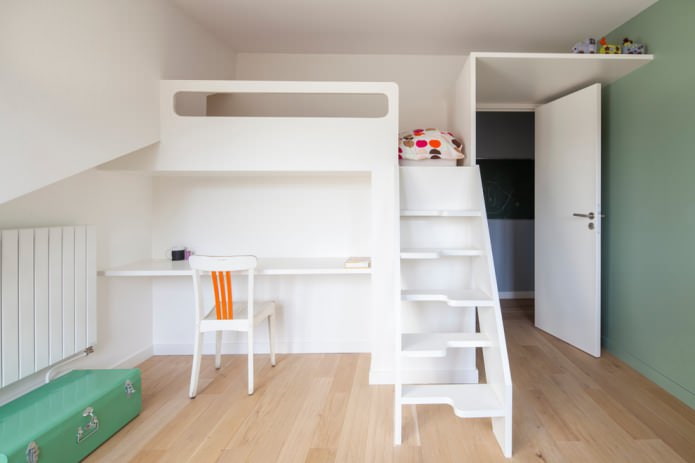
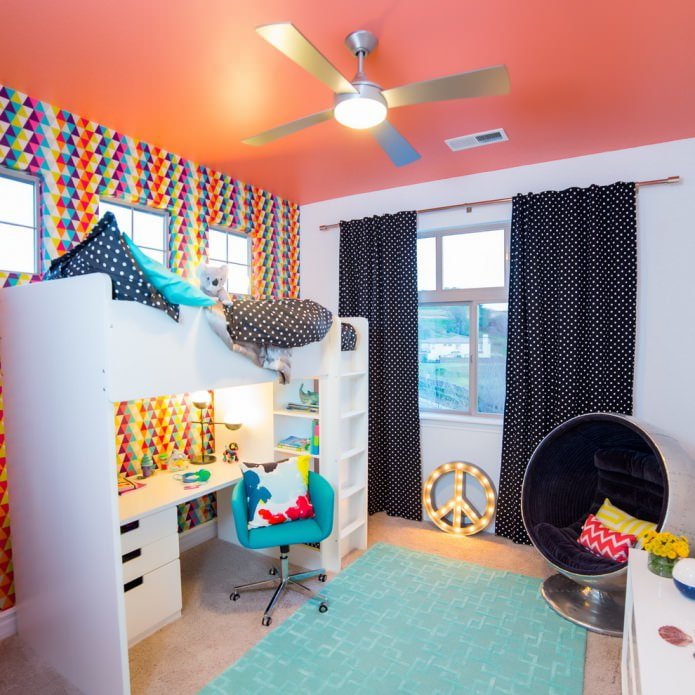
Choosing lighting, decor and textiles
When choosing lighting for a children’s room, it is recommended to choose several light sources:
- For the main lighting, it is worth choosing not a chandelier, but built-in spotlights with adjustable brightness above the work area (the light should be softly diffused and not cold).
- A daylight table lamp is a must on every schoolchild’s desk.
- A small wall night light by the bed in the nursery will help the child fall asleep.
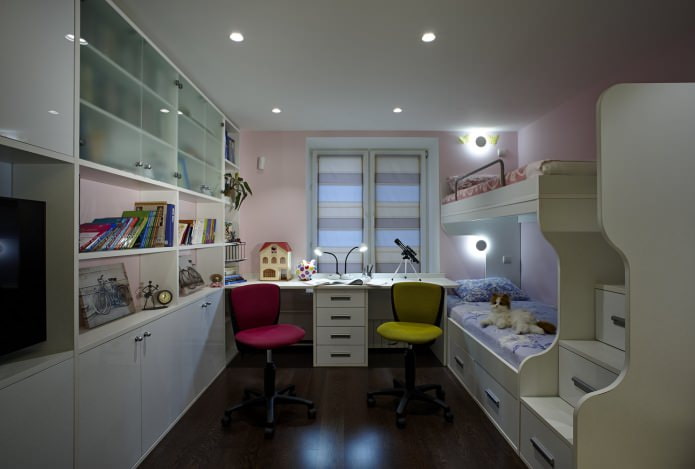
Decorating a small room should be minimal and taking into account the age characteristics of the child. For example, in a nursery for a boy under 12, a pirate or racing theme and a well-equipped sports corner (a ring with a ball or a hammock) will always be relevant. For the design of a girl’s room, it is important to have a large mirror, small pillows, a canopy, and paintings.
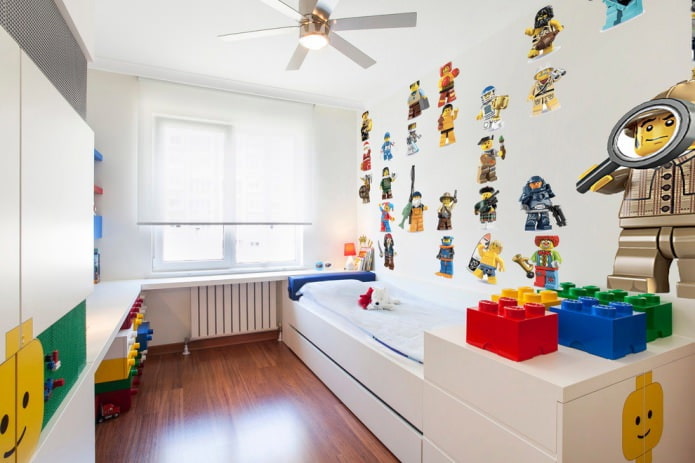
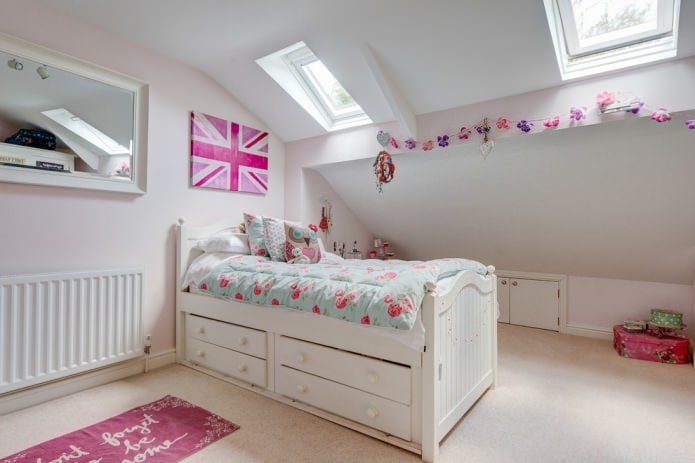
It is better to choose bed linen from natural fabric in a neutral color or with thematic patterns.
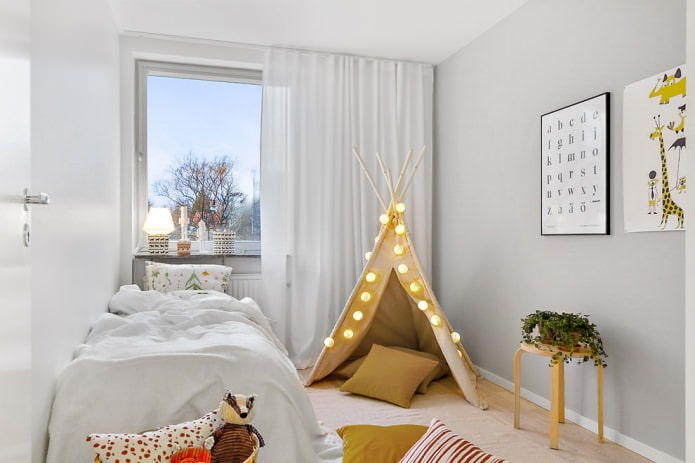
The best options for window decoration are light curtains, Roman and French curtains, blinds, tulle and translucent fabrics for convenient use of the window sill as an additional storage space. In terms of color, it is best to focus on the curtains, bedspreads and rug (as the child grows, they are easier to replace than, for example, a stretch ceiling).
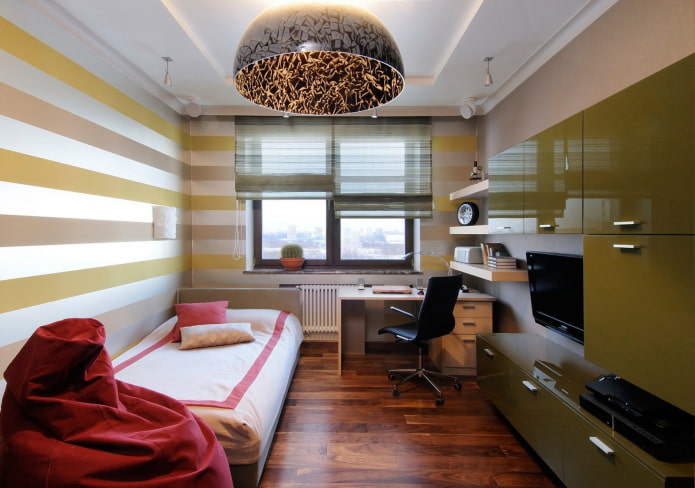
The photo shows a teenage children’s room with glossy furniture, a lush pouf and roller blinds. Horizontal stripes on the wall make a small room look wider.
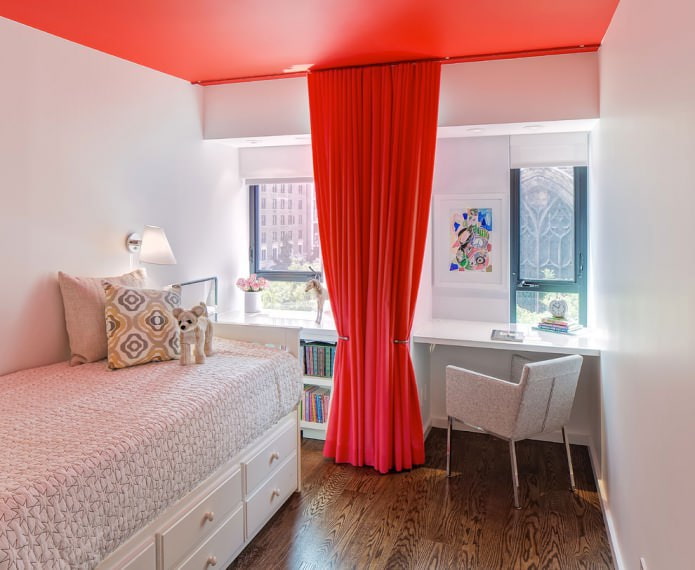
A room for two or three children
If it is not possible to allocate a room for each child, then you can divide a small children’s room for two children into personal zones. Each child will have their own shelf in one closet, there will be two approaches to the desk, each should have their own chair (if both children are schoolchildren). If these are children of different sexes, it is better to choose a bunk bed with curtains.
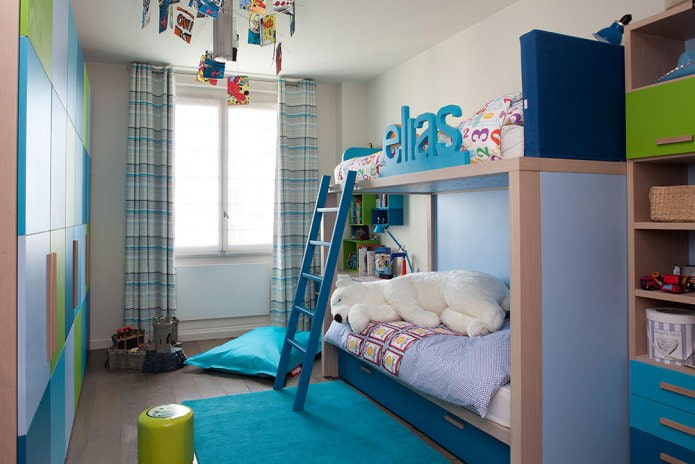
The photo shows a children’s room for two, where the color accents are panels of cold shades, a decorated chandelier and textiles.
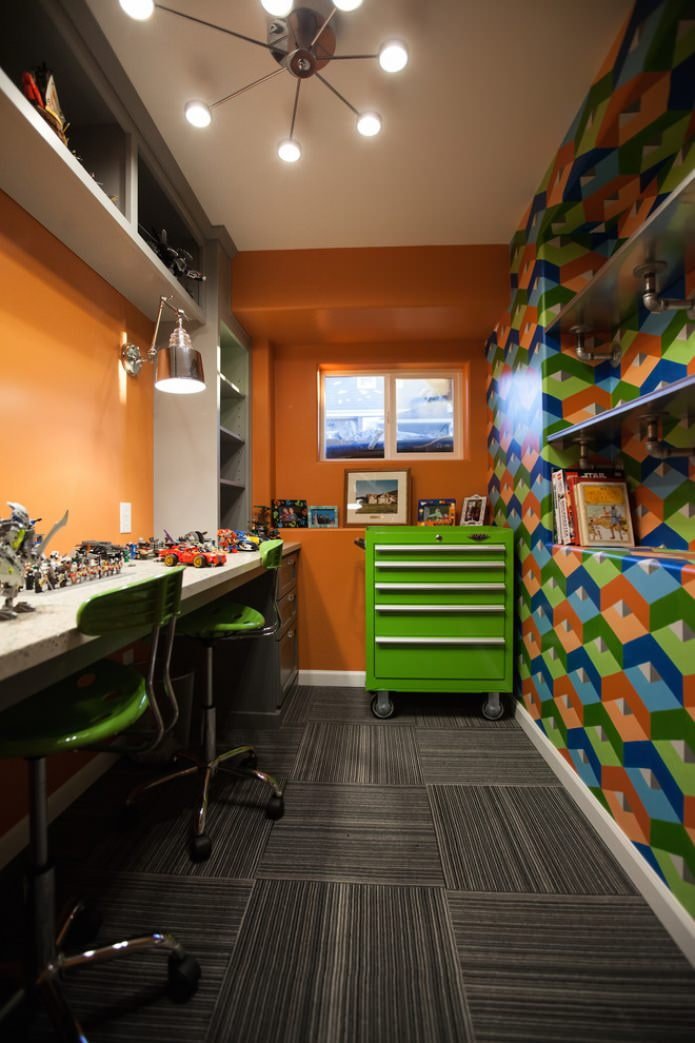
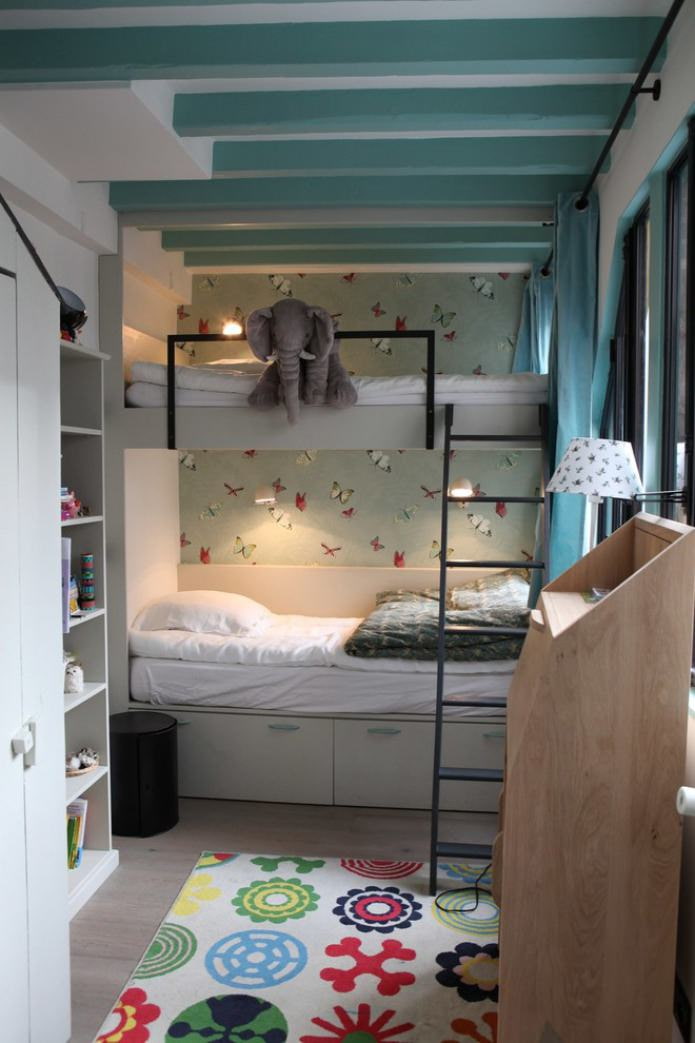
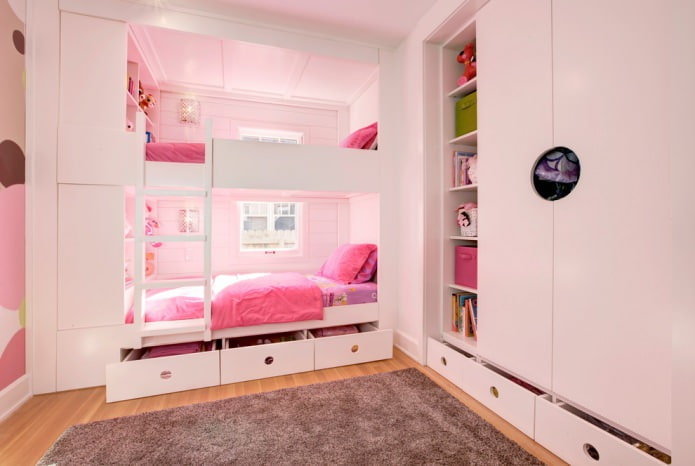
For three children, a bunk bed and a chair-bed with a comfortable mattress will do. It is important to organize a comfortable use of the zones, for example, the order of classes at the table and the organization of lighting in such a way that the student does not disturb those relaxing.
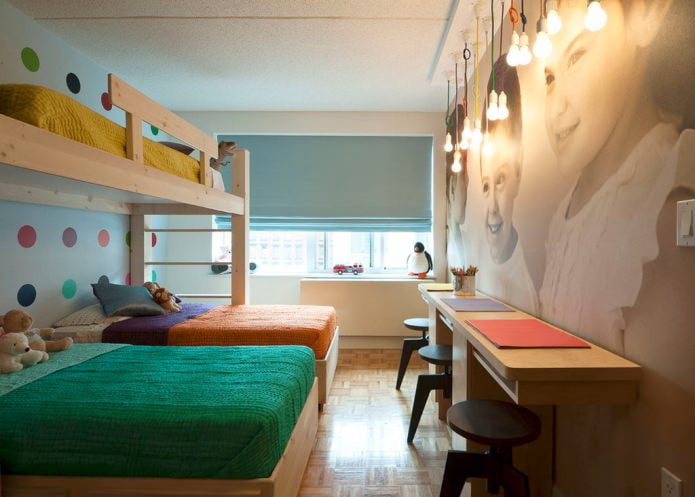
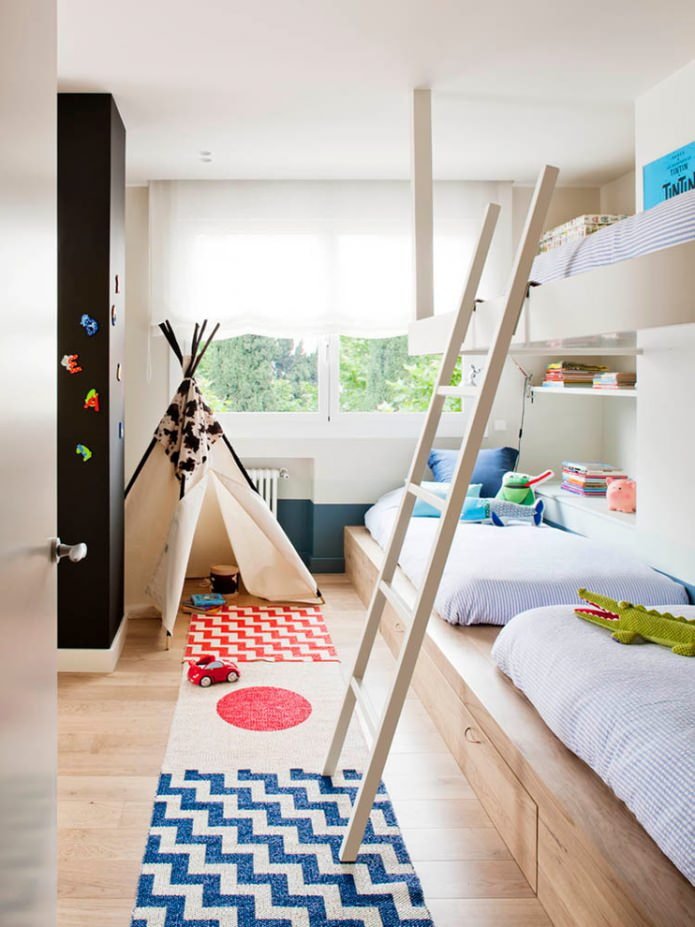
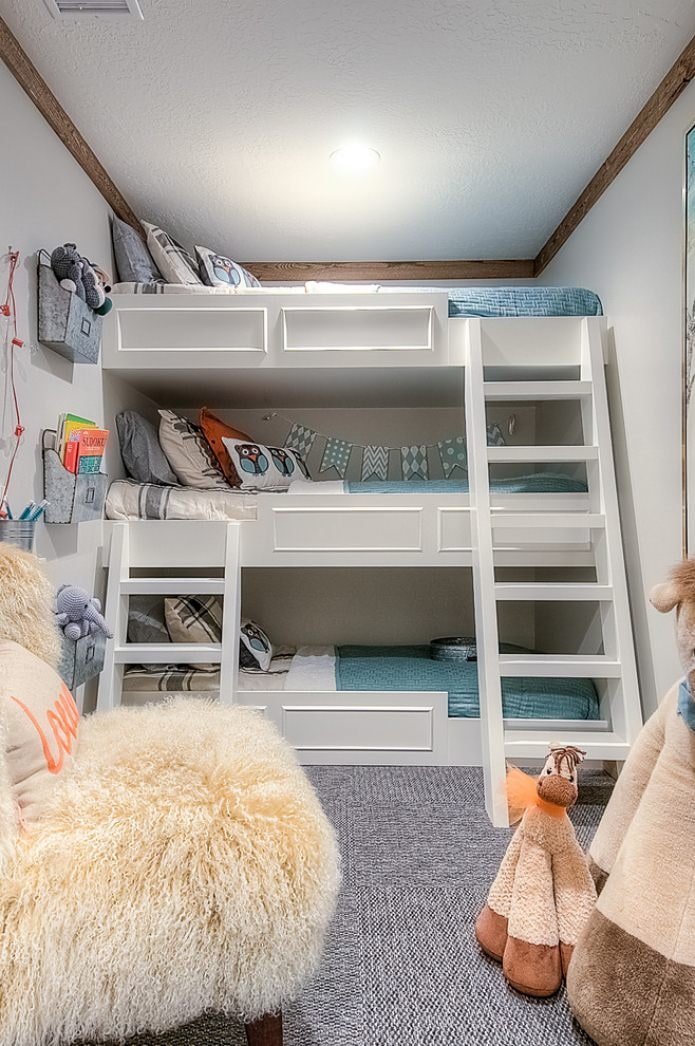
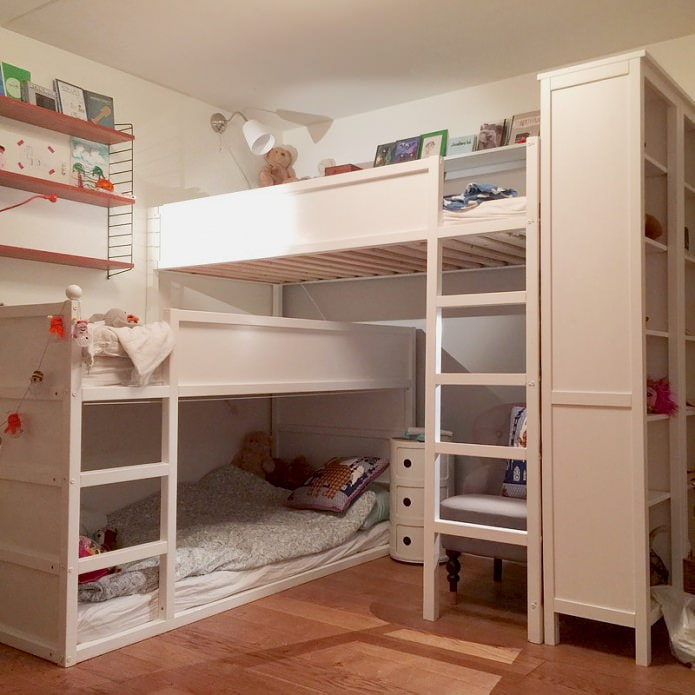
Ideas that will help expand the space of a small children’s room:
- Reject massive and long curtains in favor of roller blinds in order to use the window sill as a shelf or additional workspace;
- To save space, you can make a pull-out or small folding table;
- Light finishes, good lighting, mirrors and a glossy stretch ceiling will increase the space;
- Choosing functional furniture (for example, modern small cribs for newborns transform into a full-size bed).
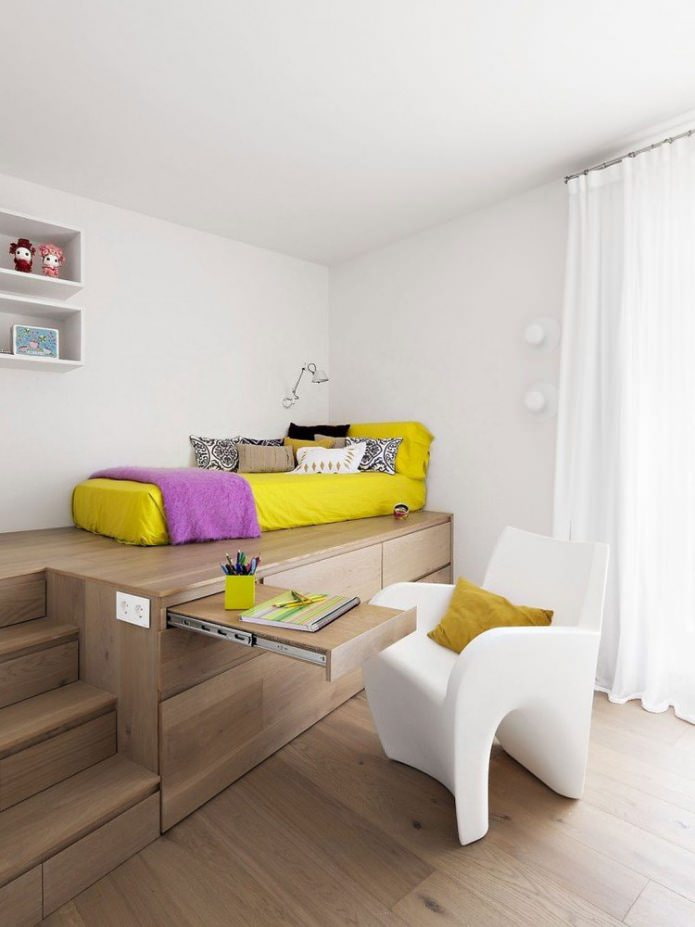
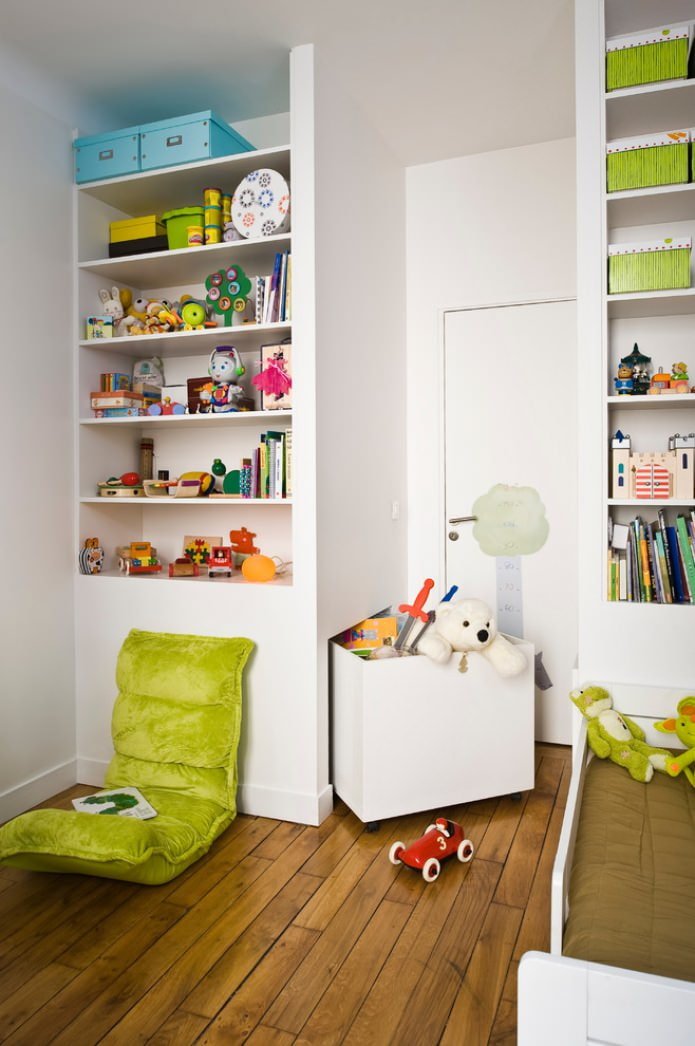
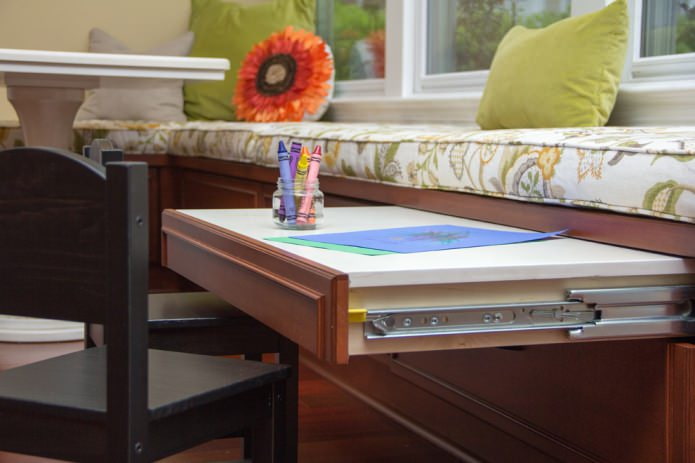
Photo examples of the design of small nurseries
The presented Below are photos of examples of using various options for decorating the interior of small children’s rooms.
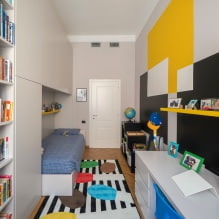
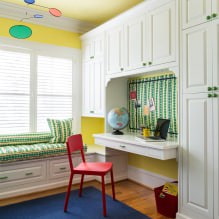
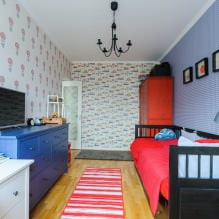
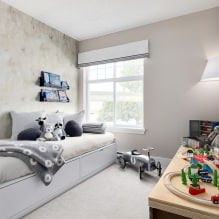
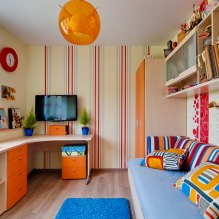
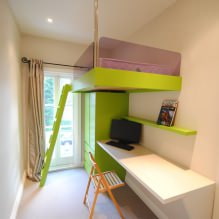
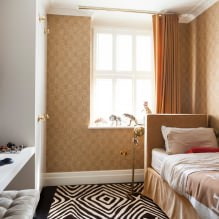
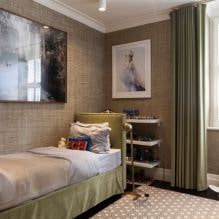
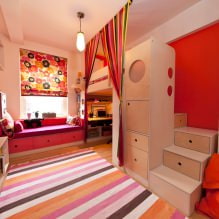
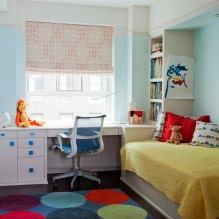
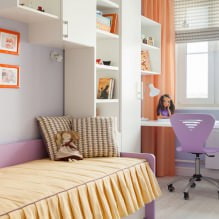
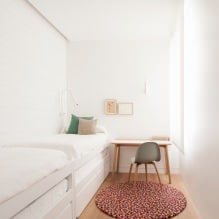
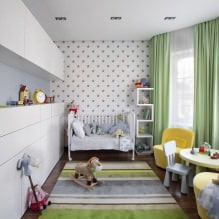
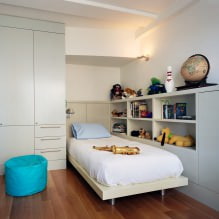
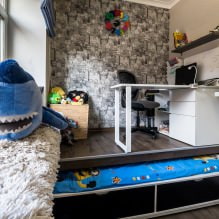
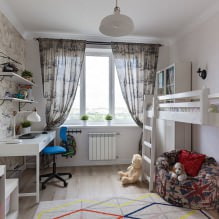
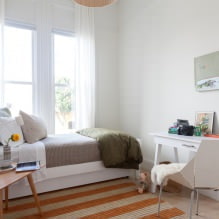
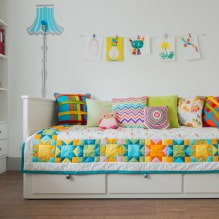
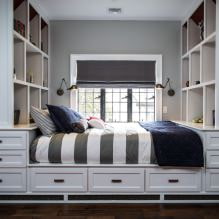
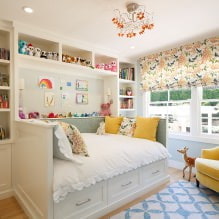
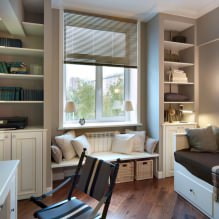
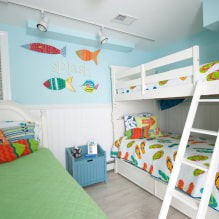
Now reading:
- 15 creative ideas for using old cardboard boxes in interior design and storage.
- 10 Creative Solutions for Organizing Space Under the Kitchen Sink
- TV stand: more than 70 photos of modern and practical solutions
- Transformer table: 60+ designer photos for the living room, kitchen and children’s room
- Living room tiles: over 40 photos and creative ideas for floor and wall decoration.